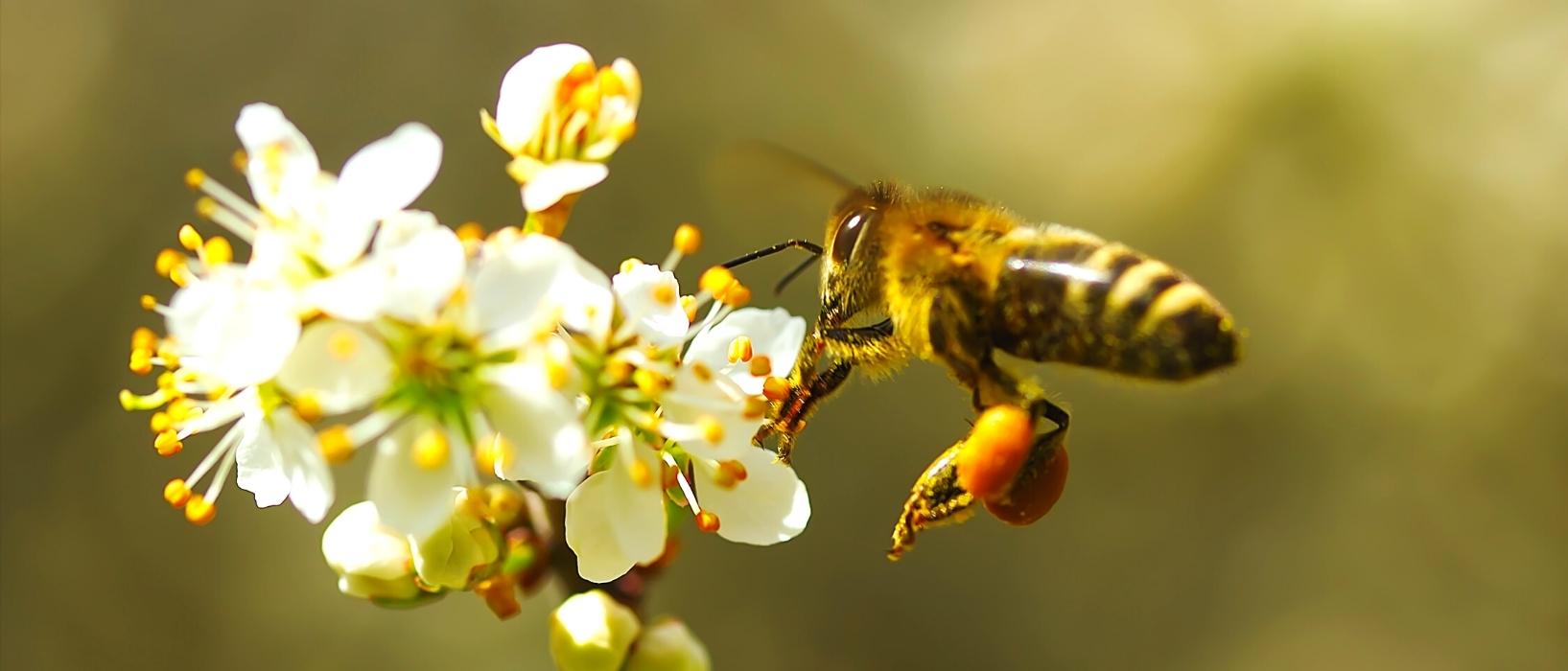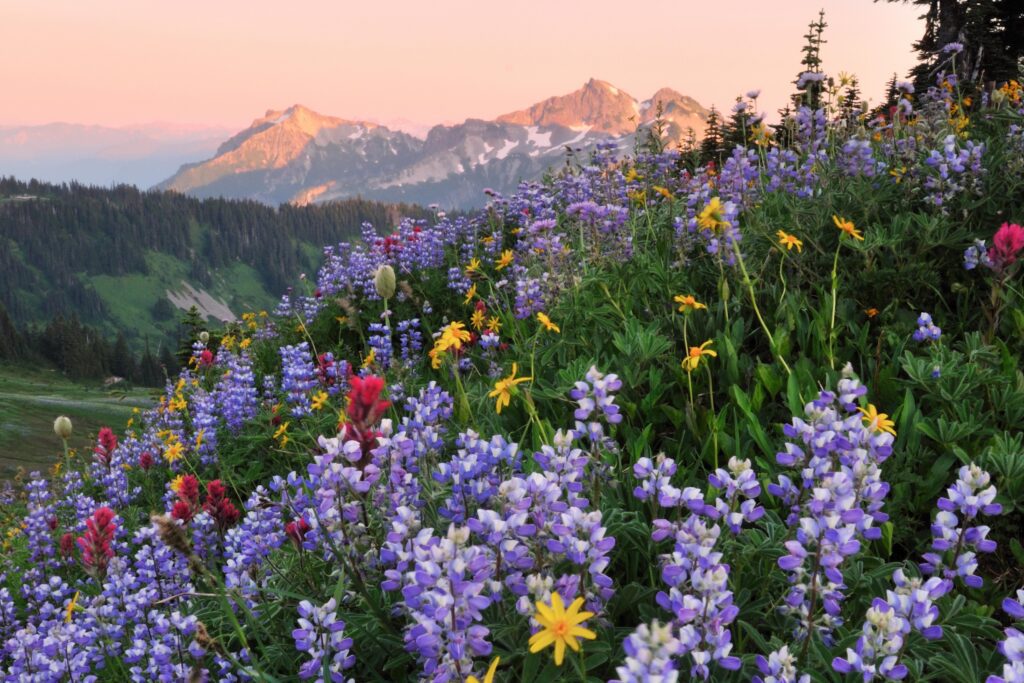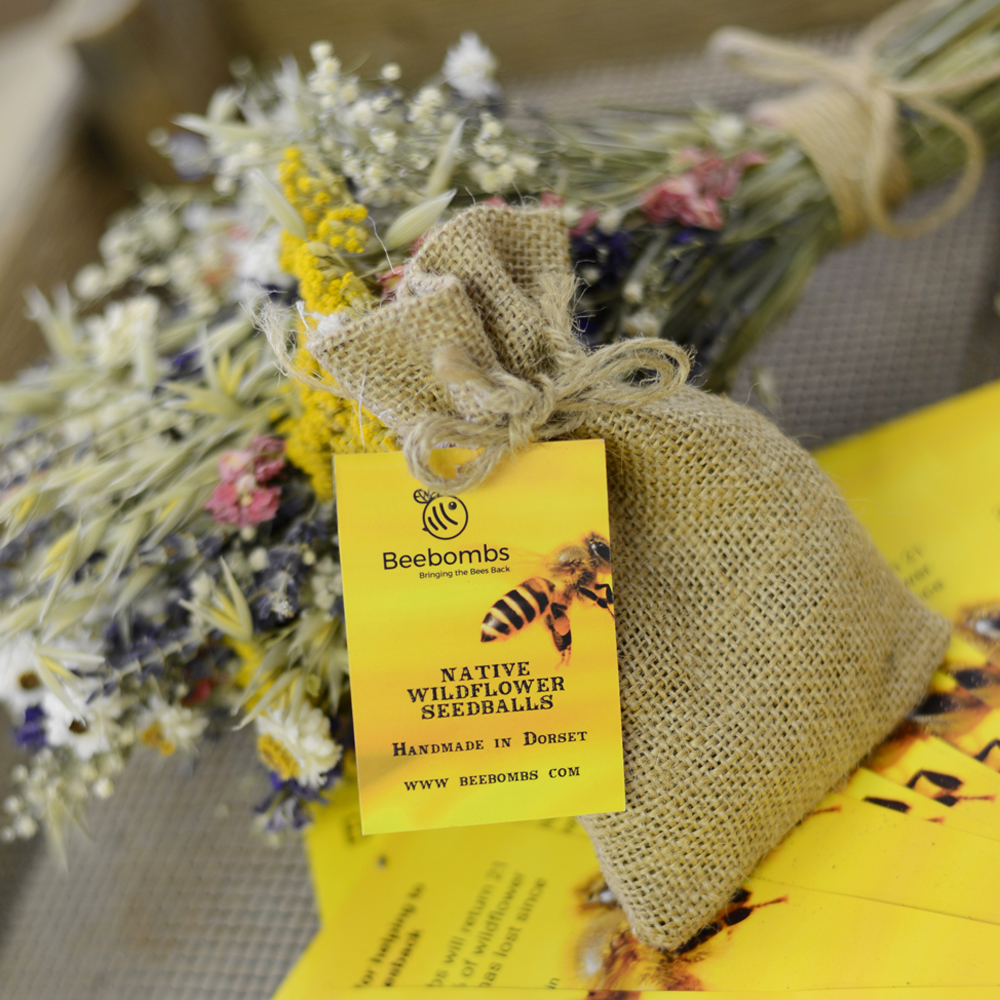
One of the first images that comes to your mind when thinking about climate change is probably a polar bear, floating on a melting iceberg.
Yet, it’s important to remember that every species of plant and animal is under threat from climate change, including the ones in your own backyard.
Take bees, for example. While you may think of them as summertime pests, bees have a crucial role in our survival as a human species.
In fact, one out of every three bites of food we eat is thanks to our fuzzy yellow friends. This is because they pollinate more than 80% of the world’s plant crops.
It’s not just bees, either. Many species of moths, butterflies, hoverflies, flies, and beetles provide an essential service in the UK (and globally) by pollinating £690 million worth of crops annually.
Yes, that means bees actually help to keep the economy buzzing. Doing this job ourselves would be incredibly difficult and would cost about £1.8 billion every single year!
This means it’s in our benefit to help save them; because when you know how to save bees, you know how to save humans, too.
Join the 1000 Tree Challenge
It doesn’t particularly matter what size your garden is, whether a window box in a flat or a large country escape, it can be a haven for insects, birds, and other animals and play a crucial role in supporting the rich local biodiversity all around us.
If you’re not the tidiest of people (or the best gardener!) then don’t worry, there’s some good news for you. When it comes to creating a biodiverse garden, the messier and more natural, the better.
Think of a forest; nothing about it is neat. That means the easiest way to be biodiverse is just to let a small section grow naturally. The natural debris this causes offers food and habitat for many different species.
You could also turn one patch into a miniature wildflower meadow, which are particularly good at supporting those helpful little pollinators, especially when mixed with long grass.
The more species, sizes, colours, and fragrances there are, the better!

It’s also important to choose plants that flower and fruit throughout the year, as this will help attract all the different species of wildlife that roam from spring to winter.
If you have a bigger space, make sure you let bigger plants grow too! Trees, hedges, and shrubs make wonderful homes for small critters, offering shelter and areas for them to nest.
You can even go all out and create something really special and unique.
An old rotting log pile tucked in the shade, for example, could be the perfect home for insects and fungi. A piece of ridged iron laid flat out could provide cover for newts, toads, lizards, and snakes. Compost heaps and mounds of grass clippings can provide the ideal habitat for slow worms.
Water is also an excellent magnet for wildlife. So, include a pond, birdbath, or even just a container of water in your garden to help many creatures thrive, from birds and dragonflies to frogs and newts.
A bird feeder is also a good addition to your garden, especially during the winter months when food sources are more scarce.
If you’re looking for something easier (but just as effective), we suggest Beebombs.

Beebombs are wildflower seedballs handmade in Dorset.
They are made from sheltering clay and sifted topsoil, packed with 1000s of seeds from 18 native wildflower species designated by the Royal Horticultural Society as “Perfect for Pollinators”.
Beebombs need no gardening skills and can be scattered straight onto the open ground at any time of the year.
Once scattered, you don’t need to water or tend your Beebombs. They can be out-competed by faster-growing grasses and perennial weeds at the critical early stages, so straight onto soil is best if possible.
Using seedballs protects the seeds from predators and provides a nurturing environment for the seeds to germinate from, making it easier for you to create the wildflower habitat Britain needs.
They use no plastic in our packaging or process and make your Beebombs in a sustainable way on a farm in Parley, Dorset.
You can shop here and use code PLAYITGREEN10 for 10% off your order.




